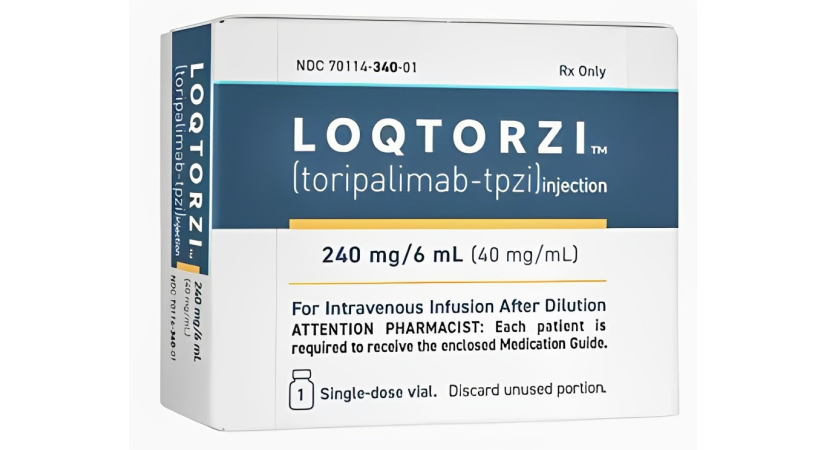Dr. Reddy’s Launches Toripalimab In India For Nasopharyngeal Carcinoma Treatment
Dr. Reddy's launches Toripalimab (Zytorvi®) in India, a next-gen PD-1 inhibitor for nasopharyngeal carcinoma, boosting cancer care.
Breaking News
Nov 29, 2024
Simantini Singh Deo

Dr. Reddy’s Laboratories Ltd., along with its subsidiaries, has announced the launch of Toripalimab in India. Toripalimab is a New Biological Entity (NBE) and a next-generation PD-1 inhibitor. It is the only immuno-oncology drug approved by global regulatory bodies, including the U.S. FDA, European Medicines Agency (EMA), and the Medicines and Healthcare products Regulatory Agency (MHRA), for treating recurrent or metastatic nasopharyngeal carcinoma (RM-NPC) in adults.
In 2023, Dr. Reddy’s entered a licensing and commercialisation agreement with Shanghai Junshi Biosciences Co. Ltd., granting exclusive rights to develop and market Toripalimab in 21 countries, including India, South Africa, Brazil, and Latin America. The agreement also allows for potential expansion to Australia, New Zealand, and nine additional countries. With this launch, India became the third country after China and the United States to gain access to Toripalimab, which will be marketed under the brand name Zytorvi®.
M.V. Ramana, Chief Executive Officer, Branded Markets, Dr. Reddy’s, said, “The launch of Toripalimab is a significant milestone for patients diagnosed with nasopharyngeal carcinoma (NPC) in India. NPC is a rare form of head and neck cancer. However, the prognosis of the disease for patients in advanced stages is poor, and India is among the top five countries in the world in terms of disease burden. As the next generation PD-1 inhibitor, Toripalimab has demonstrated superior outcomes for RM-NPC versus standard of care, meeting a significant unmet need for patients with NPC in India.”
He also commented, “This launch is also a major milestone for us as a company. Oncology has been a top focus therapy area for us. Our offerings aim to build an end-to-end ecosystem of care – access to current standard-of-care cancer medicines across multiple countries globally, innovation in formulations, strategic collaborations for novel, innovative molecules, particularly in India and other emerging markets, and beyond-the-pill support such as nutrition and digital tools. Our portfolio of standard-of-care small molecules and biosimilars across cancer types in India and other emerging markets has included Reditux™, Versavo®, Lenangio™, and Hervey Cta™.”
Toripalimab offers a significant advancement over the previous standard treatment for RM-NPC in India, which involved chemotherapy with gemcitabine and cisplatin. It is approved as a first-line treatment in combination with these chemotherapeutic agents, reducing the risk of disease progression or death by 48%. Toripalimab is also approved as a monotherapy for adults with recurrent, unresectable, or metastatic NPC that has progressed after platinum-based chemotherapy.
“Additionally, under our innovation agenda, access to novel molecules through collaborations is a key pillar since access to meaningful innovation and the latest standard of care remains challenging for patients in emerging markets. Thanks to the relentless efforts of our cross-functional teams, we have been able to launch Toripalimab in India in the same year as its launch in the U.S. We will continue to work hard to serve our patients and stakeholders to remain their partner of choice and progress towards our goal of serving over 1.5 billion patients by 2030,” added M.V. Ramana.
Nasopharyngeal carcinoma (NPC) is a malignant tumour in the nasopharynx epithelium. According to GLOBOCAN 2022 data, over 120,000 new NPC cases were diagnosed globally in 2022, with 6,519 cases reported in India. The highest incidence rates in India are observed in the northeastern states, particularly in Kohima, Nagaland, with 19.4 cases per 100,000 population.
Toripalimab is an anti-PD-1 monoclonal antibody designed to inhibit PD-1 interactions with its ligands, PD-L1 and PD-L2. This mechanism enhances immune system activation, enabling the body to target and destroy tumour cells effectively.
